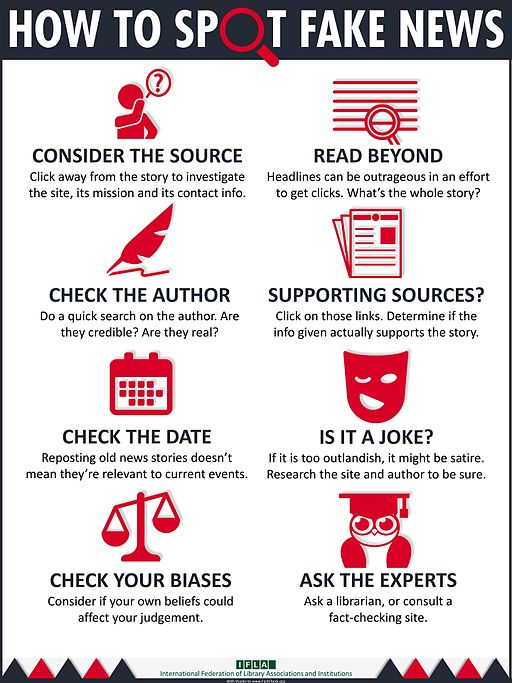IFLA Provides Comments to the European Commission Public Consultation on Fake News and Online Disinformation
European Commission Consultation Webpage
Responses From the International Federation of Library Associations (IFLA)
IFLA provides 23 responses in a six page document.
Here’s the first question and IFLA response.
Q. In your opinion, which criteria should be used to define fake news for the purposes of scoping the problem?
- Pretence of providing factual information (i.e. not opinion, or necessary conspiracy theories)
- Malicious intent to mislead (i.e. not error)
- Knowing repetition/relaying of sources (government or other) as fact, rather than quotation/opinion
- Apparent similarity to ‘news’ (i.e. focused on short-term information. This would not necessarily include poor research practice – this is already subject to professional procedures elsewhere – but would include deliberate mis-reporting of research results). Importantly, though, it should take account of how people source information now – focusing on newspapers alone is not enough.
- Refusal or reluctance to correct errors, or not giving prominence to these.
Direct to Full Text Response Document
See Also: Report From IFLA: “Real Solutions to Fake News: How Libraries Help” (August 20, 2017)
From the August 2017 Report

Filed under: Associations and Organizations, Libraries, News
About Gary Price
Gary Price (gprice@gmail.com) is a librarian, writer, consultant, and frequent conference speaker based in the Washington D.C. metro area. He earned his MLIS degree from Wayne State University in Detroit. Price has won several awards including the SLA Innovations in Technology Award and Alumnus of the Year from the Wayne St. University Library and Information Science Program. From 2006-2009 he was Director of Online Information Services at Ask.com.


